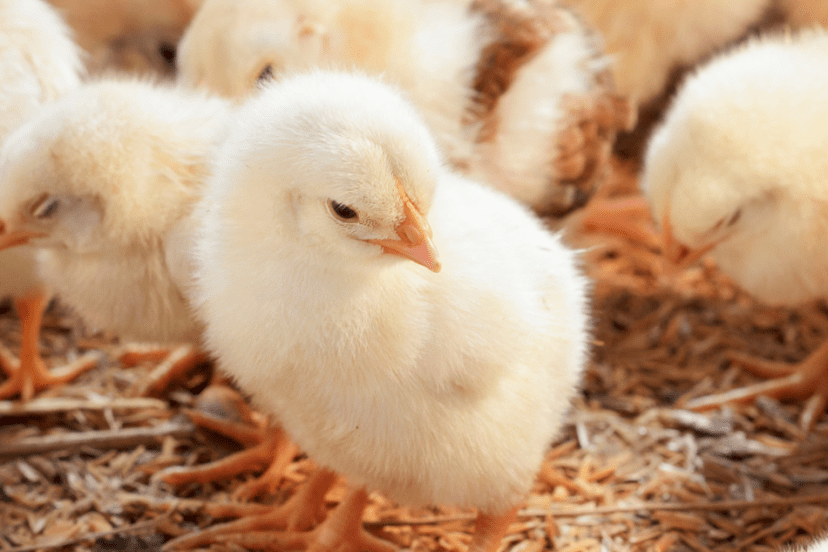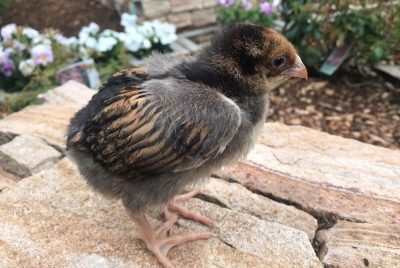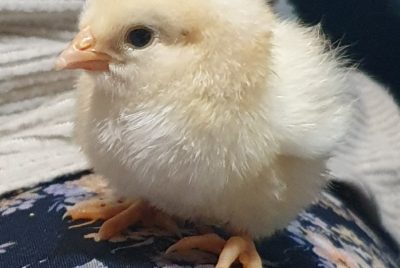Perfect Time for Selling Baby Chicks
It’s an egg-citing time to talk about selling baby chicks! If you’re a new chicken owner like me, you may be wondering when the best time is to part ways with your adorable feathered friends. In this post, I’ll share some helpful tips and insights on determining the perfect time to sell your baby chicks. Let’s get cracking!
Key Takeaways:
- Determine Feather Development: Check the feather development of your baby chicks to see if they are ready to be sold.
- Monitor Behavior: Observe the behavior of the chicks to ensure they are mature enough for sale.
- Consider Age: Age is a key factor in determining the optimal time to sell your baby chicks.
- Market Demand: Take into account the market demand for baby chicks in your area before deciding to sell.
- Health and Well-being: Ensure your baby chicks are healthy and well-cared for before selling them to potential buyers.
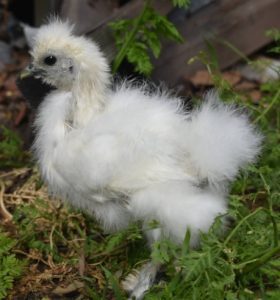
Determining Readiness
Signs Your Chicks Are Growing Up
For a backyard chicken owner like you, watching your baby chicks grow into healthy adults is a rewarding experience. As your chicks start to mature, there are several signs that indicate they are ready to be sold. One of the key signs is their feather development. When your chicks start to grow adult feathers and lose their fuzzy down, it’s a clear indication of their maturing process. Additionally, your chicks will start showing more independence and will be less reliant on their heat source.
Behavioral Changes to Look Out For
An important aspect to consider when determining if your chicks are ready to be sold is their behavior. Look out for changes such as increased pecking order behavior, where the chicks establish a hierarchy within the group. They may start to display more territorial behaviors or even show signs of aggression towards each other. These behaviors are normal as they are part of the chick’s natural development process.
However, it’s crucial to monitor these behaviors closely to ensure that they do not escalate into harmful situations. Aggressive behavior can lead to injuries or even death, so it’s important to separate any chicks that are displaying overly aggressive behavior from the rest of the flock.
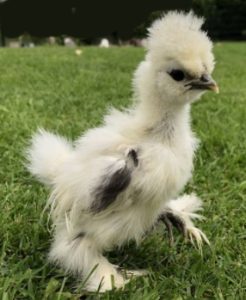
Seasonal Considerations
If you’re thinking about selling your baby chicks, it’s crucial to consider the season. Different times of the year can impact the health and well-being of your chicks, affecting their saleability and overall success of the transaction. Here are some key seasonal considerations to keep in mind.
I always gave people the Magic Water for chicks recipe as it helped them overcome stress and made them more robust. Follow the link for the recipe.
Spring: A Popular Time to Sell
Spring is a popular time to sell baby chicks because many people are looking to start or expand their flocks. The warmer weather allows for easier shipping of chicks and provides a comfortable environment for them to settle into their new homes. Additionally, spring is when many breeders replenish their flocks, creating a demand for new chicks.
Summer: Avoiding Heat Stress
Avoiding heat stress is crucial when selling baby chicks in the summer months. High temperatures can be dangerous for young chicks, leading to dehydration and even death. It’s crucial to keep your chicks cool and well-hydrated during transit and when they arrive at their new homes.
For instance, you can use insulated boxes with ventilation holes during shipping and provide electrolyte-enhanced water upon arrival to help them adjust to the heat.
Fall and Winter: Preparing for the Off-Season
As the temperatures start to drop in fall and winter, it’s crucial to prepare for the off-season if you plan to sell your baby chicks during these months. Demand may decrease during this time as many hobbyists prefer to wait until spring to add new chicks to their flocks. However, there are still opportunities to sell to farmers and breeders looking to replenish their stock.
Sell your chicks to customers who have the appropriate facilities to keep them warm during the colder months, ensuring their well-being and success in their new homes.
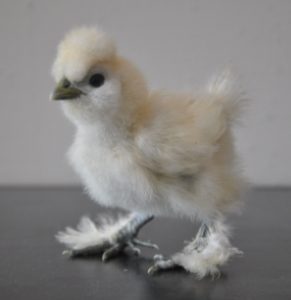
Market Demand
Once again, before deciding when to sell your baby chicks, it’s crucial to assess the market demand in your area. Understanding the local demand for baby chicks can help you determine the ideal time to sell and maximize your profits. There are a few key factors to consider when researching the market demand for your feathered friends.
Researching Local Demand
Market research is necessary to identify potential buyers for your baby chicks. You can start by reaching out to local farmers, homesteaders, and backyard chicken enthusiasts to gauge their interest in purchasing chicks. Additionally, visiting farmer’s markets, agricultural fairs, and online community forums can provide valuable insights into the demand for baby chicks in your area.
Identifying Trending Breeds
With the rise of urban farming and sustainable living practices, certain chicken breeds may be more popular than others. Identifying trending breeds can help you tailor your sales strategy to meet the current demands of consumers. Researching popular breeds for egg production, temperament, and appearance can give you an edge in the market and attract more buyers to your baby chicks.
Local hatcheries and poultry associations can also provide valuable information on which chicken breeds are currently in high demand. By staying up to date on the latest trends in backyard poultry keeping, you can position yourself as a knowledgeable and reliable seller in your community.
Capitalizing on Holiday Sales
Any savvy poultry farmer knows that capitalizing on holiday sales can significantly boost your revenue. Holidays like Easter and Mother’s Day often see an increase in demand for baby chicks as gifts or additions to family flocks. By planning your sales around these peak seasons, you can take advantage of higher prices and increased interest in baby chicks.
Demand for baby chicks can skyrocket leading up to holidays, so be prepared to adjust your inventory and marketing efforts accordingly. Offering themed promotions or bundle deals can also help attract customers looking to celebrate special occasions with adorable new additions to their homes.

Preparing Your Chicks
Not only is it necessary to time the selling of your baby chicks right, but it’s also crucial to adequately prepare them for their new home before finding them a new family.
The **health** of your baby chicks is incredibly important before you can consider selling them. Feed Them Magic Water a few times a week. Click on the link for the free recipe.
Nutritional Preparation
**Nutrition** is very important in keeping your chicks healthy. **You should provide** them with a **balanced diet** that **includes** **necessary nutrients** to support their growth and development. I always added a small amount chopped herbs to their feed after the first week. It is not only good for them but helps them with their foraging.
The **right** nutrition is crucial for the overall health and well-being of your baby chicks. **You might want to consider** using **commercially available chick feeds** that are **specifically designed** to meet the **nutritional needs** of young birds. Their is nothing wrong with making your own, as you will know exactly what is in it.
Socialization and Handling
Handling your chicks regularly and ensuring they are comfortable around people is **key** to their well-being and **future behavior**. **I recommend** spending time with your chicks every day, gently interacting with them, and getting them used to human touch.
Handling
Socializing your chicks from a young age will make them **more friendly and docile**, which **can make** them **more appealing** to potential buyers. **I cannot stress enough** how important it is to handle your chicks with care and **gentleness** to ensure they grow up to be well-adjusted birds.
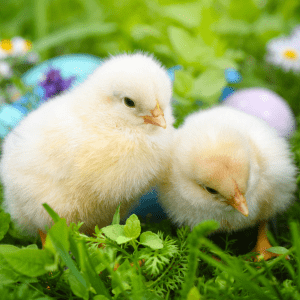
Pricing Strategies
Determining Fair Market Value
To determine the fair market value of your baby chicks, you can research prices from local hatcheries and online sellers. **An** easy way to gauge the pricing is by looking at the average cost of baby chicks of the same breed and quality in your area. Factors such as breed rarity, quality of the chicks, and demand can also influence the prices in your local market.
Pricing Based on Breed and Quality
If you have rare or high-quality breeds of baby chicks, you can **Quality** set a higher price compared to common breeds. Chicks that come from strong bloodlines, have desirable traits, or are from a reputable breeder can also fetch a premium price. It is important to highlight the unique features of your chicks when setting the price based on breed and quality.
Discounts and Promotions
**An** effective way to attract more buyers is by offering discounts or promotions on your baby chicks. You can consider running promotions during peak buying seasons or offering bundle deals for multiple chicks. Value is perceived not only through the price but also through special offers and discounts that make your chicks more appealing to potential buyers.
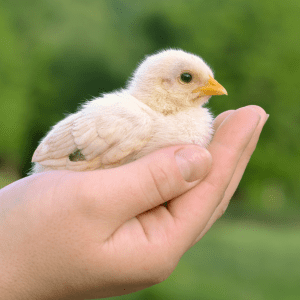
Marketing and Advertising
Unlike large businesses with extensive marketing budgets, as a small-scale chicken breeder, you may need to get creative with your advertising strategies to sell your baby chicks effectively. Here are some ways you can market and advertise your birds to reach potential buyers:
Online Marketplaces and Classifieds
One of the most cost-effective ways to reach a wide audience of potential buyers is by listing your baby chicks on online marketplaces and classified ad websites. Websites like Craigslist, Facebook Marketplace, and dedicated poultry forums can help you connect with local buyers looking for new additions to their flocks. Be sure to include high-quality photos and detailed descriptions of your chicks to attract more interest.
Social Media and Networking
On social media platforms like Facebook, Instagram, and Twitter, you can showcase your adorable baby chicks to a large audience of potential buyers. **One** of the key advantages of using social media for advertising is the ability to engage directly with your customers and build relationships with them. You can join poultry-related groups and pages to share your listings and interact with other chicken enthusiasts who may be interested in purchasing your chicks.
Maximize your reach on social media by running targeted ads to connect with local users interested in raising chickens. Leverage social media algorithms to ensure your baby chick listings are seen by those most likely to buy.
Local Advertising and Events
Marketplaces such as farmers’ markets, flea markets, and local agricultural fairs can be excellent venues to **promote** your baby chicks to a local audience. **Local** community bulletin boards, newspapers, and radio stations are also great **places** to advertise your birds to potential buyers in your area. Consider partnering with local pet stores or feed supply shops to display flyers or posters advertising your baby chicks for sale.
**Local** events such as poultry swaps or backyard chicken workshops are **great** opportunities to meet potential buyers face-to-face and showcase the quality of your baby chicks. By participating in these events, you can **establish** **strong** relationships with customers and build a loyal following for your chicken breeding business.
100 Best Names for Baby Chicks
| Peep | Angel | Coral | Tulip | Apple |
|---|---|---|---|---|
| Fluffy | Autumn | Ivory | Daffodil | Lacey |
| Nugget | Lavender | Juniper | Mint | Waffles |
| Chirpy | Pickles | Butterball | Popcorn | Sprinkles |
| Sunny | Jellybean | Tulip | Fudge | Charcoal |
| Snowball | Taffy | Daffodil | Freckles | Twilight |
| Coco | Caramel | Mint | Toffee | Peaches |
| Buttercup | Clover | Popcorn | Nutmeg | Mocha |
| Daisy | Sugar | Fudge | Skittles | Moonbeam |
| Poppy | Berry | Freckles | Bluebell | Cloud |
| Willow | Mango | Toffee | Snickers | Lollipop |
| Sparkle | Kiwi | Nutmeg | Starburst | Pippa |
| Biscuit | Pumpkin | Skittles | Skye | Muffin |
| Marshmallow | Snickerdoodle | Bluebell | Apple | Glitter |
| Honey | Hazel | Snickers | Lacey | Pecan |
| Cookie | Petunia | Starburst | Waffles | Muffler |
| Bubbles | Lemon | Skye | Sprinkles | Fig |
| Cupcake | Chive | Apple | Charcoal | Blackberry |
| Ginger | Saffron | Lacey | Twilight | Hazel |
| Blossom | Velvet | Waffles | Peaches | Junebug |
| Hazel | Trixie | Sprinkles | Mocha | Smores |
| Peanut | Whiskers | Charcoal | Moonbeam | Cupcake |
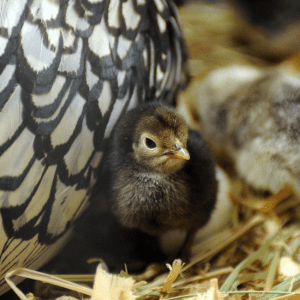
Conclusion on Selling Chicks
Ultimately, knowing the perfect time to sell your baby chicks is crucial to ensure they go to loving homes and you make a profit. By following the tips and guidelines provided in this article, you can successfully find the ideal time to sell your baby chicks. Whether you are a seasoned breeder or new to the chick-selling game, these insights will help you navigate the market and find the right buyers for your adorable feathered friends.
Be mindful of, patience is key when it comes to selling baby chicks. Understand the market demand, prepare your chicks for sale, and promote them effectively to maximize your profits and ensure your chicks are well-cared for in their new homes. So, when you’re ready to sell your baby chicks, use the tips in this article to find the perfect time and make the process smooth and successful!
FAQ’s About Selling Chicks
Q: How do I know if my baby chicks are ready to sell?
A: You can tell your baby chicks are ready to sell when they have reached the appropriate age and weight for their breed. Additionally, they should be healthy and free from any diseases or abnormalities.
Q: What is the best age to sell baby chicks?
A: The best age to sell baby chicks can vary depending on the breed, but generally, they are ready to sell around 1-6 weeks of age. At 6 weeks, they are fully feathered, have reached a good weight, and are ready to thrive in their new homes. However, many people prefer to buy them when they are still cute, round, and fluffy. People would ring me and ask for day old chicks. I would always give them older chicks a few days old as they are more robust at that point. Selling a one day old chick has many risks attached as they have only just popped out of the shell and are getting their bearings. I found the 2-3 day old chicks faired much better and the people were happy.
Q: What factors should I consider when deciding when to sell my baby chicks?
A: When deciding when to sell your baby chicks, consider factors such as market demand, the health and condition of the chicks, and your own capacity to care for them. It’s important to choose a time when you can ensure the chicks will have a smooth transition to their new homes. There are people in the marketplace I refuse to sell to. If I think the chicks won’t be treated well, I simply tell them I can’t help. This can be done in many ways.
Q: How can I maximize the sale value of my baby chicks?
A: To maximize the sale value of your baby chicks, focus on providing them with proper nutrition, housing, and care to ensure they are healthy and well-developed. Additionally, marketing your chicks effectively and building a positive reputation for your breeding practices can help increase their value.
Q: Are there any specific steps I should take before selling my baby chicks?
A: Before selling your baby chicks, make sure to properly advertise them to attract potential buyers. Provide clear and accurate information about the chicks’ breed, age, and any special characteristics.

